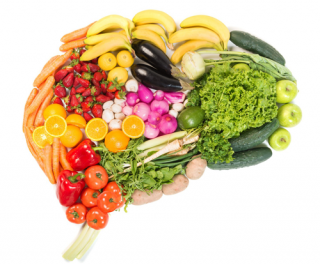FEEDING YOUR BODY AND BRAIN
If “you are what you eat,” what about foodsa that help your mood?
A nutritious diet is good for a variety of reasons, but a handful of foods can help your mental health. While adding some foods can be helpful, removing others from meals or snacks can be equally important.
Changing up what you’re eating also appears to make a difference. Eating meals and snacks that include a range of foods, instead of eating the same meals every day, appears to help improve mental functioning. The brain and nervous system depend on nutrition to build new proteins, cells and tissues, which is why a variety of carbohydrates, proteins and minerals is needed. Five foods that could be beneficial to your diet include:
Fermented foods, including cheese, sauerkraut and yogurt, contain probiotics and those can help improve gut health. And a healthy digestive system, in turn, can help reduce social anxiety.
Bacteria from a healthy gut produce a range of neurochemicals that the brain uses to regulate physiological and mental processes, including mood, according to the American Psychological Association. It’s believed that most of the body’s supply of serotonin, which stabilizes mood, is produced by gut bacteria.
Fermentation is the ancient technique of preserving food that has microorganisms, such as yeast and bacteria, working to convert carbohydrates into alcohol or acids. And the distinctive tart flavor it produces? It’s what makes foods like kimchi and drinks like kombucha so unique.
Loads of vegetables, especially raw and not processed, help with mental well being because they’re packed with nutrients. A recent study showed that 10 foods most strongly associated with positive mental-health outcomes were carrots, bananas, apples, dark leafy greens (such as spinach), grapefruit, lettuce, citrus fruits, fresh berries, cucumber, and kiwifruit. Dark green leafy vegetables are packed with nutrients, including Vitamin A, Vitamin C, antioxidants, fiber and folate. Eating them means delivering the fuel of vitamins and minerals to the body.
Lean proteins are important sources of energy for the body so that it can think and react quickly. Good sources of protein include chicken, meat, fish, eggs, soybeans, nuts and seeds. Proteins also help control ghrelin, which is a hormone that – when elevated – can increase impulsivity and lower the ability to make decisions.
Complex carbohydrates are incredible sources of energy and they can increase those important healthy gut bacteria. Whole grains provide folate and other B vitamins which are important to brain development and functioning. Quinoa, beets and sweet potatoes are among those carbs with a high nutritional value that will mean feeling full longer than quick-hitting simple carbohydrates that are found in sugar and candy.
Healthy fats are those found in fish, nuts and olive oils. Omega-3 fats are important building blocks for the brain. A deficiency in them is associated with depression; Omega-3 supplementation is a therapeutic option in some cases.
Just paying attention to the foods in your diet can increase motivation to take care of yourself in other ways. And while adding a variety of foods can help improve the way your body and mind function, removing something may help too. One big one to consider:
Sugar and processed foods can lead to inflammation and that can contribute to mood disorders, including anxiety and depression. Too much sugar can lead to the body failing to produce as much of a protein called brain-derived neurotrophic factor, which is involved in the development of depression and anxiety.
While changing your diet can impact your mood and the way your body functions, if you have depression or anxiety, your first step should be getting help from a mental health professional.
If you or a loved one is in a mental health crisis that cannot wait – please don’t wait. The expert team at Willow Creek Behavioral Health is a phone call away, 24/7. Call (888) 464-1498, or toll free at (844) 308-5050, to be connected with a mental health professional who can help to determine the next steps – including setting up an in-person assessment the same day.







